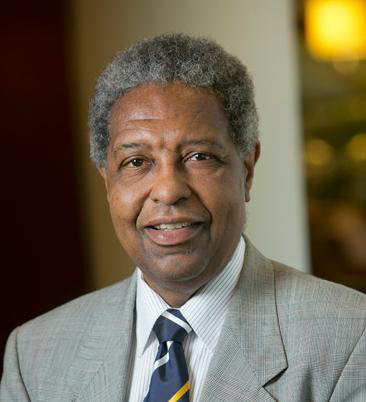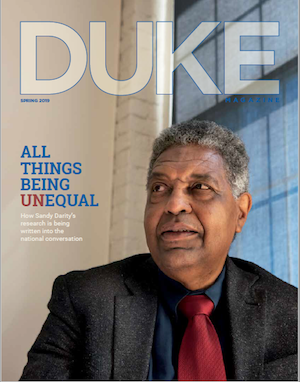Shadow Politics, August 18, 2019
Shadow Politics with Senator Michael Brown and Maria Sanchez
Guest, William Darity
Headlined Show, Shadow Politics August 18, 2019

Our guest is Duke University Professor William Darity Speaking about Reparations. He is a Professor in the Sanford School of Public Policy at Duke University. Reparations for slavery is the idea that some form of compensatory payment needs to be made to African Americans to reconcile a history of slavery and discrimination in the United States. Presidential candidates and professors alike are talking a great deal about reparations these days. Are US citizens now ready to embrace this idea? Listen in to find out! Tune in to SHADOW POLITICS on Sunday to hear our discussion with Professor Darity about the history of reparations and the likelihood of it happening in the near future. Call in with your comments!
Guest, William Darity

Darity’s research focuses on inequality by race, class and ethnicity, stratification economics, schooling and the racial achievement gap, North-South theories of trade and development, skin shade and labor market outcomes, the economics of reparations, the Atlantic slave trade and the Industrial Revolution, the history of economics, and the social psychological effects of exposure to unemployment.
He was a fellow at the Center for Advanced Study in the Behavioral Sciences (2011-2012) at Stanford, a fellow at the National Humanities Center (1989-90) and a visiting scholar at the Federal Reserve’s Board of Governors (1984). He received the Samuel Z. Westerfield Award in 2012 from the National Economic Association, the organization's highest honor. He is a past president of the National Economic Association and the Southern Economic Association. He also has taught at Grinnell College, the University of Maryland at College Park, the University of Texas at Austin, Simmons College and Claremont-McKenna College.
He has served as Editor in Chief of the latest edition of the International Encyclopedia of the Social Sciences, (Macmillan Reference, 2008) and as an Associate Editor of the new edition of the Encyclopedia of Race and Racism (2013).
His most recent books are Economics, Economists, and Expectations: Microfoundations to Macroapplications (2004) (co-authored with Warren Young and Robert Leeson) and a volume co-edited with Ashwini Deshpande titled Boundaries of Clan and Color: Transnational Comparisons of Inter-Group Disparity (2003) both published by Routledge. He has published or edited 12 books and published more than 210 articles in professional journals.
Darity lives with his family in Durham, N.C. where he plays harmonica in a local blues band, occasionally coaches youth sports, and especially enjoys reading science fiction and speculative fiction. (On leave, 2015-2016)
Shadow Politics

Shadow Politics is a grass roots talk show giving a voice to the voiceless. For more than 200 years the people of the Nation's Capital have ironically been excluded from the national political conversation. With no voting member of either house of Congress, Washingtonians have lacked the representation they need to be equal and to have their voices heard. Shadow Politics will provide a platform for them, as well as the millions of others nationwide who feel politically disenfranchised and disconnected, to be included in a national dialog.
We need to start a new conversation in America, one that is more inclusive and diverse and one that will lead our great nation forward to meet the challenges of the 21st century. At Shadow Politics, we hope to get this conversation started by bringing Americans together to talk about issues important to them. We look forward to having you be part of the discussion so call in and join the conversation. America is calling and we're listening… Shadow Politics is about America hearing what you have to say. It's your chance to talk to an elected official who has spent more than 30 years in Washington politics. We believe that if we start a dialog and others add their voices, we will create a chorus. Even if those other politicians in Washington don't hear you — Senator Brown will. He's on a mission to listen to what America has to say and use it to start a productive dialog to make our democracy stronger and more inclusive. If we are all part of the solution, we can solve any problem.










